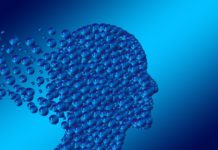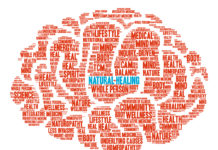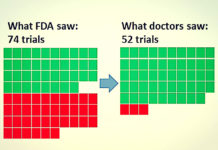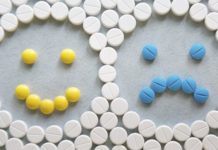The Chemical Imbalance Theory of Depression: Where Is It Going?
The spurious chemical imbalance theory of depression is arguably the most destructive thing that psychiatry has ever done. Worldwide, millions of individuals are taking antidepressants, often with a cocktail of other drugs, because they have been told the blatant falsehood that they need the pills to combat a brain illness.
The Review on Antidepressant Withdrawal That Cochrane Won’t Publish
Peter Gøtzsche and Anders Sørensen on trying to get a review of methods for safe antidepressant withdrawal published in Cochrane: "They sent us on a mission that was impossible to accomplish" to "protect the psychiatric guild."
David Joslin – Remedy Alpine, Giving Veterans the Power to Seek Personal Discovery
An interview with David Joslin. David is a retired army medic, having been deployed to Iraq in 2003 and Afghanistan in 2008. David currently works as a senior healthcare administrator and he has co-founded Remedy Alpine, a Veterans therapeutic recreation non-profit dedicated to providing wilderness therapy adventures in Alaska.
A Kirist Response to Psychiatry
Eric Maisel offers a new philosophy of life called kirism, answering questions about purpose, meaning, and how to live.
Building an Intersectional Psychology of Economic Class
Innovative research methods and interventions could address socioeconomic disparities in academic achievement.
What It’s Like to Be Involuntarily Committed
Ten years after being fired for taking a mental health leave after the Virginia Tech massacre, I was diagnosed as "schizophrenic" and involuntarily committed to a hospital. Now I have a job and a life, but I'm still forced to take drugs and report to a social worker.
How Does Mindfulness Work?
A new study explores how mindfulness impacts self-compassion and meaning in life to increase mental health and wellbeing.
NY Times to Bonnie Burstow: May You Not Rest in Peace
In its obituary of Bonnie Burstow, the New York Times published a comment from historian Edward Shorter that was both vile and slanderous. Burstow, if she had been alive, could easily have set the record straight.
Hearing Veteran Narratives is Key to Suicide Prevention
Current suicide assessment practices of the VA are reductive and do not allow for the individual’s narrative to be heard.
Psychiatry, Capitalism, and the Recuperation of Psychedelics
For a psychiatrist trained to conceptualize within the medical model, psychedelics will at worst be a novel pharmacotherapy altering broken neural pathways, and at best remain an intervention targeting a multidimensional “mental illness” rather than a communion with the magical yet essential dimension of the human experience.
The P-Value Problem in Psychiatry
Stanford researcher writes that readers should check the effect size of results instead of looking at the p-value.
Can a Conceptual Competence Curriculum Bring Humility to Psychiatry?
Training for conceptual competence in psychiatry provides a new way forward to address theoretical and philosophical issues in mental health research and practice.
WARNING: May Cause Moral Failure
As the SNRI molecules sluggishly evacuated my bloodstream and I progressively regained my emotions, the gravity of what I had done descended upon me. I couldn’t believe I had actually been capable of committing several crimes over an extended period of time, without stopping to think about the risks to my wife and kids, or even myself.
John Read – UK Esketamine Approval – Not so Fast
An interview with Professor John Read who joins us to discuss the UK licensing of esketamine nasal spray (Spravato) for so-called ‘Treatment Resistant Depression’. John led a group of 12 academics and professionals who wrote to the UK regulator expressing concerns.
Big Pharma Meets Big Diagnosis, Big Courts, and Big Psychiatric Hospitals
Gottstein’s book is The Pentagon Papers of the traditional mental health system, because he exposes a mind-blowing number and variety of cold-blooded, calculating actions on the part of Eli Lilly in trying to hide what it knew to be the devastating effects of its hugely profitable Zyprexa.
How Dissenting Voices are Silenced in Medicine
Researcher criticizes the many ways opposing viewpoints and dissenting voices are squashed in the field of medicine.
Reimagining Healthcare
The conventional Western classification systems of health conditions are based on flawed science shaped by reductionist, hierarchical, and profit-driven ideologies. THEN wants to create a new paradigm built upon principles drawn from systems science, the life course perspective, developmental neurobiology, and other evidence-informed studies.
Nuanced History of Asylums Shows Context Matters
A bottom-up approach to understanding the history of asylums allows us to learn from past successes and failures in the mental health system.
School Discipline is Racially Biased and Increases Misbehavior
School discipline that punishes minor misbehavior may increase adolescents’ misconduct and lead to racial inequalities in school discipline.
Where Are the Results of These Five Clinical Trials of Antidepressant Drugs?
The results of five large-scale clinical trials of antidepressants have never been made accessible to the public, a data set compiled by an international team of researchers shows. Their discovery highlights the incompleteness of available data on the safety and efficacy of antidepressant drugs.
Transgender Children Development Consistent with Current Gender, Not Sex Assigned at Birth
Transgender children show strong identification and preferences stereotypically associated with their current gender identities, not their sex assigned at birth.
Researchers: Antidepressant Withdrawal, Not “Discontinuation Syndrome”
Researchers suggest that the pharmaceutical industry had a vested interest in using the term “discontinuation” in order to hide the severity of physical dependence and withdrawal reactions many people experience from antidepressants.
Ready, Fire, Aim: Mainstream Psychiatry Reacts to the UN Special Rapporteur
In a commissioned commentary, two psychiatrists assailed the Special Rapporteur’s "anti-psychiatry bias." Their commentary reads as a crude ad hominem attack on the Rapporteur himself in order to divert attention from his well-founded conclusions about mainstream psychiatry.
Wendy Dolin – Making Akathisia a Household Word
An interview with Wendy Dolin who talks about the work of MISSD, the Medication-Induced Suicide Prevention and Education Foundation in Memory of Stewart Dolin, a non-profit founded to raise awareness of the tragic consequences of drug-induced akathisia.
How President Trump and Dr. Drew Got It Wrong on Deinstitutionalization
Compounding the lack of participation of former and current patients, a major theme of the summit was that Americans diagnosed with “serious mental illness” should not be able to make their own treatment decisions.

































